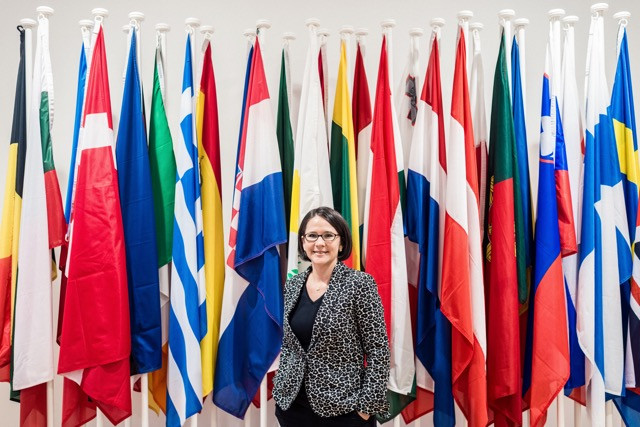“There is fear and uncertainty in Europe,” said former Danish prime minister Poul Nyrup Rasmussen while in Luxembourg in February. “People are looking for answers and they are split between two fundamental attitudes. The first is apathy. ‘I can’t do anything about it, so I’ll stay at home and watch TV and hope someone, someday will fix it.’ The second is anger. ‘It’s too much. I’m finished with traditional politics, so I’ll turn to populists and nationalists’.”
Yuriko Backes, head of the European Commission’s representation office here in the grand duchy, says that even in Luxembourg--one of the six founders of European Steel and Coal Community in 1952 and an original signatory five years later of the Treaty of Rome--which established the European Economic Community, there is growing scepticism. Latest Eurobarometer polls, taken in October 2018, show that just 56% of Luxembourg residents had a “generally positive” view of the EU. “Luxembourg doesn’t live in a vacuum or a bubble,” Backes tells Delano. “Trends sometimes come a bit later to Luxembourg. The Luxembourgish people read the Luxembourg press but also zap between French and German and even Belgian TV, so they get influences from many places. I think many people here do take the EU for granted," she says.
“Europe is more fragile than one might want to believe."
With 190 MEPs voluntarily retiring, according to sources cited by Politico, even without the expected wave of smaller parties entering the parliament for the first time, there will be plenty of new faces at its inaugural plenary session on 2 July. Nine days later MEPs will have their first opportunity to elect a candidate as the new president of the European Commission. This is expected to be the leader of the largest political grouping--currently Germany’s Manfred Weber of the centre-right EPP. But that is far from certain in what is already being seen as the most unpredictable election for many years.
Engaging with sceptics
Backes concedes that the majority of citizens are probably not well enough informed about how Europe works. “It is extremely complicated, even for those of us who work with the institutions every day,” she says. Backes likens her role to that of an ambassador for the EU, with her representation reporting back to the EC president on what is happening in the grand duchy, but also explaining to Luxembourg’s government and institutions commission policy and proposals. “We are the president’s mouth and eyes in the member states,” she explains.
The Maison de L’Europe also seeks to engage with the general public about the values of the EU. “We need to discuss what kind of Europe we want.” That means even talking with the sceptics. “These are the people we want to engage with. I am a profoundly convinced European, but I also see what is going on and what could be improved. We should all be constructively critical. But constant scepticism and wanting to destroy the EU has no future. These forces present no solutions to the future. We would simply return to a situation of war, and nobody wants that.”
Myth busting
The banning of curved bananas and EU regulations on the sale of cabbage running to a mind-boggling 26,911 words are just two examples of the more absurd myths that have been brandished by eurosceptic media over the past few decades. Boris Johnson has admitted that while he was the Telegraph’s correspondent in Brussels he used to throw these stories out just to see what effect they would have in England. Other, more serious articles claimed that then EU Commission president Jacques Delors had a “plan to rule Europe”. The myths keep coming and Backes is clearly perturbed by many of them. But she is prepared to fight back.
“I am not a fan of anything that comes close to brainwashing. I cannot be credible and say and defend things that I don’t believe in. So, I base what I communicate on numbers, facts and concrete examples.”
She says the press has a role to play in countering claims that are, in her words, “blatantly wrong”. Those who argue that Europe is not democratic, for example, need to be told that Europe has a democratically elected parliament, a council of ministers composed of governments that have been elected by the people, a treaty that all member states and parliaments have ratified.
Another popular myth is that the main expenditure in the EU’s budget goes on administrative costs. “It’s false! The administrative cost accounts for less than 7% of the budget, and the institutions are fighting to keep it at that level.” The budget itself was just €137 billion in 2017, less than the budgets of Belgium or Austria, for example.
The all too easy and misleading consensus, Backes says, is that everything that is good is due to national efforts and all that is bad is blamed on Brussels. “The EU has to be more vocal. Not only myth-busting, but fighting disinformation in general is very important,” Backes concludes.
